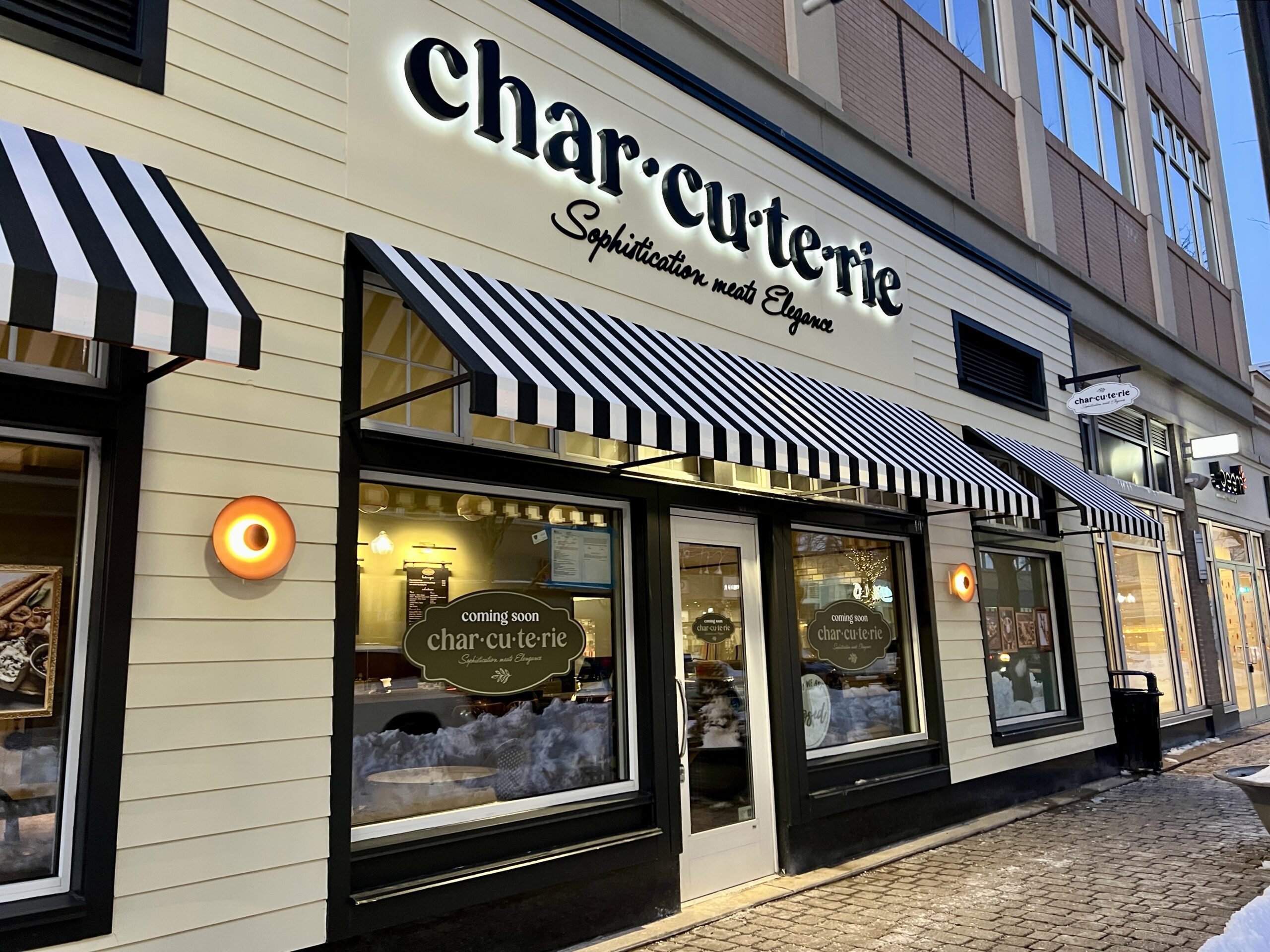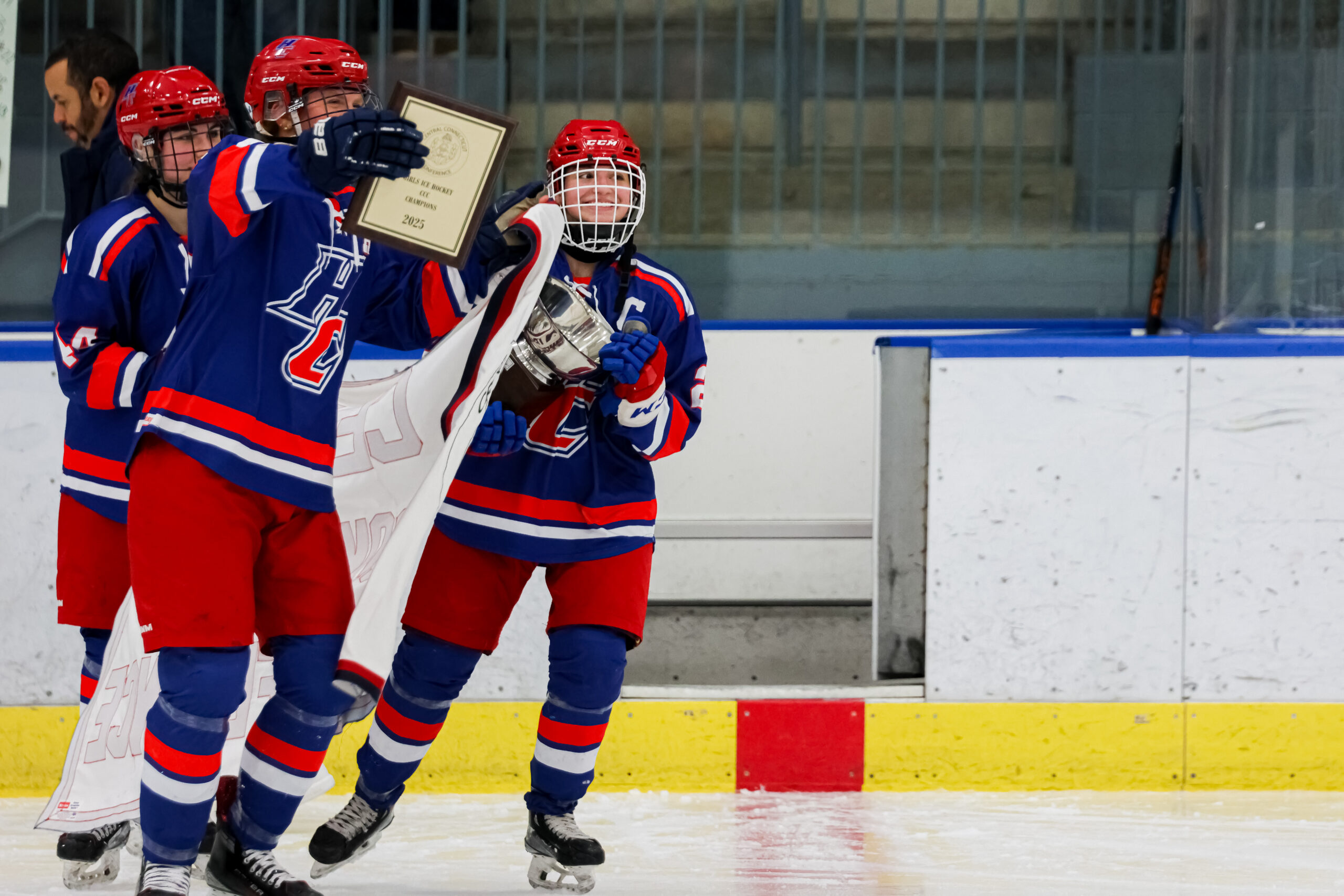All Politics Is Local: Manage Trash Like a Utility

Audio By Carbonatix

Bin from Blue Earth for collection of food scraps. Photo credit: John Lyons
‘All Politics is Local’ is an opinion column written by John Lyons, a member of West Hartford’s Democratic Town Committee.
By John Lyons
Each month I examine national issues and offer my thoughts on how West Hartford (and we as residents) are impacted. You’ll be surprised at how much seemingly small, or out-of-sight issues have a big impact on all of us.
I recently boarded a plane to fly from Hartford out west. My first flight was a short one connecting in Detroit and my seatmate on that first flight was in the mood to talk. I engaged in pleasant chitchat with her about what we each did and where we lived and where we were each headed. She offered that she was in the garbage industry working for a company that manages landfills, with her role selling space in the landfills to garbage haulers. Depending on where you live, a landfill is where your trash from home often ends up going.
From my point of view, the household trash process can be amazingly simple: you buy 13-gallon trash bags at a cost of about $20 for 50 of them, put one in a garbage can every several days or so and dump everything from food scraps to paper to non-recyclable packaging in it and when full, you put it in your green bin which in West Hartford is picked up once per week by Paine’s – the company the town has contracted with to haul away residential trash.
Over the last two years, our household has subscribed to a food recycling company and every other Thursday, the food scrap company folks come and pick up our food waste which sits inside a green bag in a mini green bin. A company by the name of Blue Earth Compost handles our food scrap collection.
In the state of Connecticut, much of the household trash typically goes to a landfill. Somewhere. It is the ultimate “out of sight, out of mind result.” In the case of West Hartford, household trash is sent to Bristol, CT-based Reworld Waste, where it is incinerated and converted it to energy. In West Hartford, Paine’s also picks up recycling. Those centers are all over the place and much of the material has been exported to other countries as processing recyclables can often be done more efficiently overseas.
The food scraps taken by Blue Earth are brought to Quantum Biopower in Southington and composted to fertilizer and offered back to subscribers for their gardens and planters.
My seatmate further explained that the landfill she was selling space in would be completely filled to capacity in five years. I asked her what her company would do when it was full, and she explained they would have to buy more land and no matter where that land is, it is becoming more difficult and expensive to acquire and manage any land designated for trash disposal. She said every community in the country is experiencing increased trash collection and disposal costs, that the northeast was the hardest to find landfill suitable land for trash and as such, it made her job easy offering something that haulers were clamoring for. They bill the haulers by the ton and the tonnage rates have been climbing for years – ballooning into larger portions of city budgets annually. The costs are passed on to homeowners and residents of cities and towns. She went on to mention that it is a worldwide problem that most countries were having to come to grips with.
She educated me that food scraps are of both the highest density and weight when it came to household trash and eliminating food from trash would go a long way to increasing the lifespan of landfills and reducing the tonnage fees to haulers that are billed to towns. It became apparent to me during this conversation that trash collection needs to be managed more like a utility and billed based on volume (like electric usage or water consumption) and it currently is not. A hypothetical example: why should I pay higher rates for my water if a neighbor waters their grass four times a week and I don’t? If my household produces less trash, why should I pay the same as a neighbor who produces three times as much trash? That is the logic being applied to the problem of waste management.
West Hartford had been running a pilot program for food recycling in the Morley district for the past year and under consideration was a town-wide rollout of a pilot as part of new refuse collection measures which could have offered a significant positive impact to the town IF people participated. Such a program takes the most dense and heavy parts of the garbage and effectively recycles it while significantly lowering the amount of household trash by both volume and weight. I’ve been aware of the town’s effort to improve trash hauling while lowering costs as the town has been looking at newer alternatives since about 2016. Food recycling is a key part of this. That conversation with my seat neighbor on that airplane opened my eyes further.
The way the program works is to offer those little green bins I mentioned earlier for food scrap recycling. They have a green bag liner and when the company picks up the food scraps, they put a brand-new liner in the bin. The bin seals snugly so there is no odor other than when you place food in it and reseal it. Our little bin weighs probably 25 pounds or so by collection day. Food IS dense!
What happens to the food scraps? The food scrap recycling companies make soil out of it and in doing so, it significantly reduces the carbon impact of that portion of our household trash. That soil can be used safely for pretty much anything soil is used for.
That leaves us with household garbage which is much more complicated: Currently the only “limit” on how much trash a West Hartford resident can throw out is limited to the size of the Paine’s green 95-gallon bin (or a 65-gallon bin if you have the smaller size). Food scrap recycling will go a long way toward reducing the weight and volume of the trash and thereby reduce the tonnage fees that town must pay to remove the trash. All communities are going to have to face this issue head on in the not-so-distant future and finding a simple way to handle non-food trash and keep the costs proportionate will be a challenge, but a necessary one in all likelihood.
This is not about “saving the world,” and I will try to stay away from this and other “populist” views to problems throughout this series as there are no easy answers. Populism tends to remove the personalization of this issue that we all must come to terms with and oversimplify complex issues where there is no easy solution. It is not “someone else’s problem”; it is all of us that need to own the challenge, this way, no one is absolved of their responsibility in participating.
It is coming time to recognize that trash collection, like other utilities, should be managed on a pay-by-volume basis. West Hartford can once again lead the way as we did with town-wide recycling decades ago and food scrap recycling can be a great start in that direction. To be clear, it is a start and in no way a total solution. Many questions still need to be answered such as: How are lower income households treated? How are households with young children and higher trash volume treated?
We will delve even further into these and other challenges in future columns.
I’m glad I was in the mood to chat on that flight a few weeks ago. I’ll see you next month.
The views expressed represent the opinion of John Lyons, and are not intended to represent the opinion of We-Ha.com or the West Hartford Democratic Town Committee.
Like what you see here? Click here to subscribe to We-Ha’s newsletter so you’ll always be in the know about what’s happening in West Hartford! Click the blue button below to become a supporter of We-Ha.com and our efforts to continue producing quality journalism.




Agree, but pay per bag is a terrible idea that puts the burden on the homeowner and has to have an enforcement mechanism (which our town isn’t great at: See traffic, overnight parking). A tech enabled solution is to weigh on the truck and charge a credit card or send a bill to the homeowner. Easy peasy and friction free!
I was really hoping the town would at least start recycling food waste. I composted for 20+ years but 2 years ago started having rat problems. We zipped up the house and started recycling with Blue Earth and I love it. We have no problems with rats anymore. No garbage bin invasions and absolutely beautiful compost in exchange. I imagine as more towns start their foray into dealing with garbage issues, we will have more data in how to start our own programs. Sooner or later, hoping sooner, we will have to deal with it.
The town council did not believe the town was ready for town wide adoption of the Morley pilot approach. But I hope they can find a way (including subsidizing) to increase the adoption of food waste diversion. Mr. Lyons’s article does a good job of outlining the value of this. That would be a start! But for the reasons outlined in the article we need to reduce our trash production. The Morley pilot demonstrated that we can reduce trash – the missing ingredient is acceptance by residents.
A really well written article which hopefully gets people onboard with food waste recycling who may not want to do “one more chore” but maybe if works towards thinking how this would save them and us all money, maybe that would be the angle to get some folks to buy in. This is a problem that isn’t going away and will only get worse over time, especially with the advent of online shopping and more packaging waste being thrown out daily…